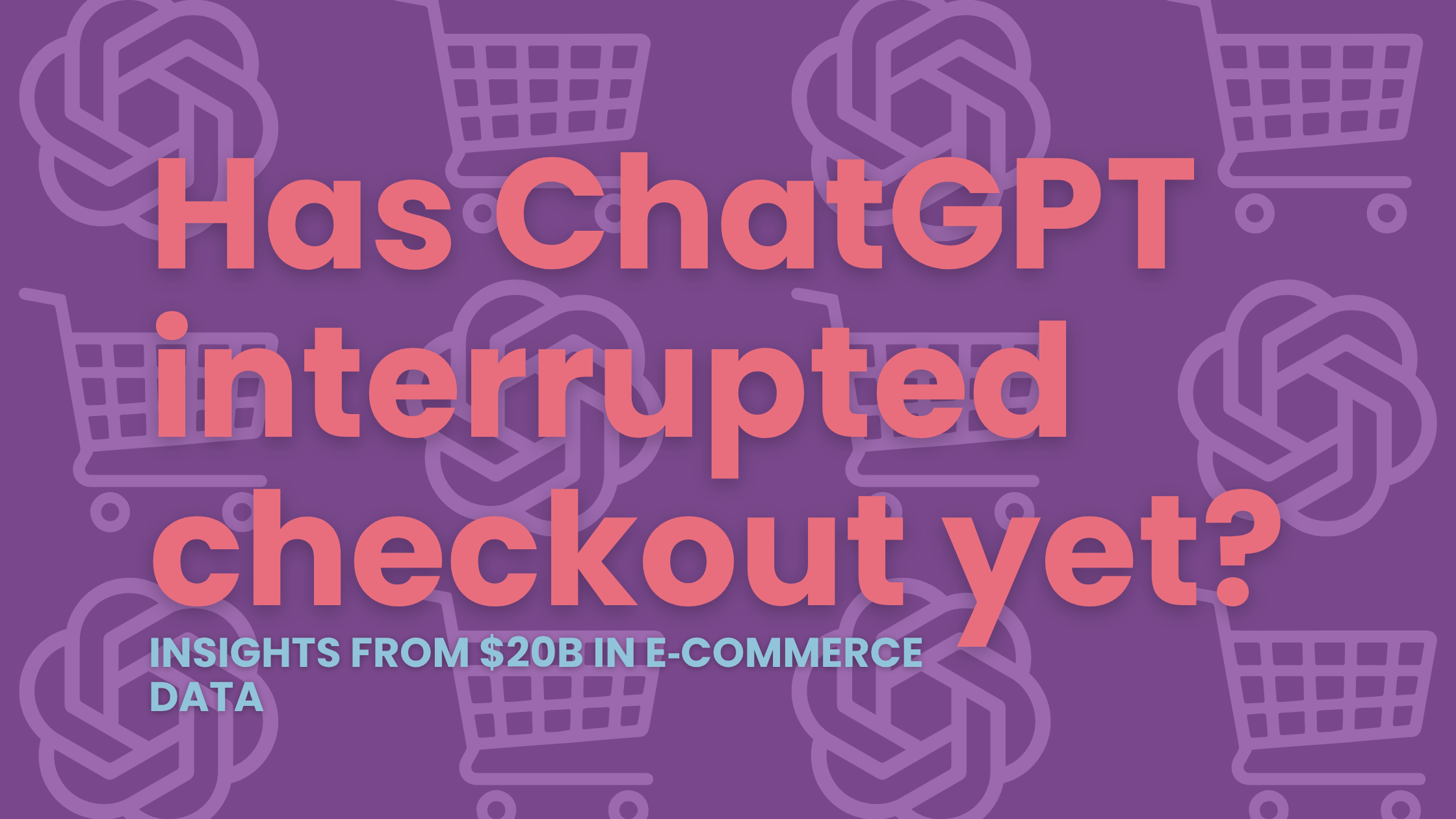Last week, researchers from the University of Hamburg and Frankfurt School published what might be the most important e-commerce study you probably haven't heard of yet. They analyzed 12 months of first-party data from 973 websites with $20 billion in combined revenue, examining over 50,000 transactions from ChatGPT referrals alongside 164 million transactions from traditional channels. The question they set out to answer: Does organic LLM (Large Language Models - the technology that powers tools like ChatGPT) traffic outperform traditional digital channels in e-commerce?
For the last few years, we've all been riding the hype train that LLMs and ChatGPT are the future, and that AI is coming for our jobs!
ChatGPT launched shopping features in August 2024, and immediately everyone is talking about the death of Google. Industry reports started throwing around conversion rates of 15.9% for ChatGPT traffic versus 1.8% for organic search.
We’ve all been nodding along, thinking “of course AI is better than traditional channels - it has more context, more user memory, a conversational interfaces and reasoning (kind of)!” We’ve been preparing for an LLM revolution in e-commerce as if it’s already happened.
Reality Check: one year after ChatGPT started providing outbound e-commerce links, organic LLM traffic accounts for less than 0.2% of total website traffic and underperforms nearly every traditional channel.
ChatGPT referrals have lower conversion rates than Google’s paid and organic search, lower revenue per session, and only manage to outperform paid social media. While the bounce rates are lower (suggesting relevance when clicks do occur), session duration and page views lag behind traditional channels.
The researchers tested their views against a variety of different models and methodologies but no matter how they sliced it the results held firm.
The twist: LLM traffic is improving, just not fast enough to justify the hype. Conversion rates did increase over the study period, but the average order value (AOV) decreased. The researchers project that ChatGPT won’t catch up with organic search within the next year. There are a few reasons for this, but it boils down to platform immaturity, and consumers are still building familiarity and trust with shopping via AI.
So, what does this mean for your strategy? You should absolutely be preparing for the LLM future by optimizing product catalogs, testing conversational commerce, and understanding how AI recommendations work. But not at the expense of the channels that are actually driving revenue today. Your paid search campaigns, affiliate partnerships, and yes, even organic search still deserve serious investment and attention. The data is clear: traditional channels will remain the workhorses of e-commerce performance, and LLM traffic is still finding its footing.
The e-commerce landscape is shifting faster than most brands can keep up with, and navigating these shifts requires partners who balance emerging AI potential with current revenue drivers. At Carbon, we help you prepare for the AI-driven future while maximizing performance across today’s most effective channels. Successful e-commerce strategy isn’t about chasing trends - it’s about building comprehensive approaches that adapt to change while keeping your revenue flowing and growing.


